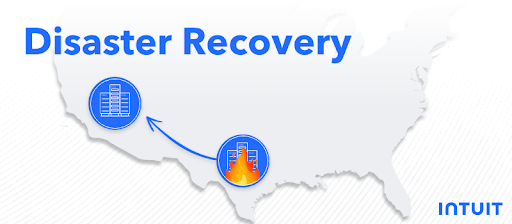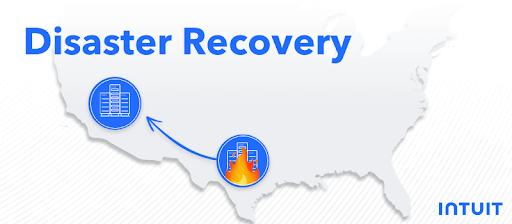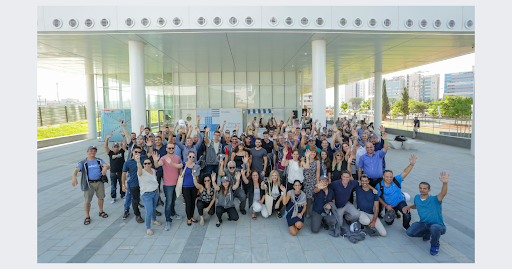
A Webinar By Intuit Will Teach You About Disaster Recovery In 2023
Why is it so important to develop disaster recovery infrastructure these days? How can we save companies from losing data? Ran Efrat, senior software architect from fintech giant Intuit, teaches about DR infrastructure development in a professional webinar you won't want to miss out.
In the era of digital transformation, there is no business or company that can afford to lose the data they have, or even disable the computer systems for a short time, not to mention prolonged days.
Such a "disaster" may occur in countless scenarios - a cyber attack by hackers, technical failures, power outages, communication failures, human errors, war, fire or a natural disaster. The result is the loss of critical data on a wide scale, which leads to heavy financial losses, damage to the company's reputation on the part of customers, and damage to the trust of employees.
3 View gallery


Intuit Israel will share in a webinar how to build Disaster Recovery plan
(Image: Penguin Strategies)
The insurance certificate for business continuity of an organization is called a disaster recovery plan. A recovery system is based on an alternative site or sites designated as Disaster Recovery sites that have a real-time backup copy of the data. During a disaster, the systems are activated at the alternate site and control is transferred to it. Additional parameters in the program include reducing downtime, returning systems to full output in a minimum of time, identifying and repairing damaged files, and more. Of course, it is not enough to develop a complete and thorough plan, but it must be embedded in the organization and must be reviewed regularly.
More and more organizations already understand the importance of a disaster recovery strategy, and establish a DR program either by internal teams, or with the help of external companies that specialize in setting up DR sites. What is required of developers to build a Disaster Recovery program? All the answers are presented in a new webinar by the American fintech giant Intuit.
Intuit is known for its leading products for financial management, including the QuickBooks software that serves approximately 250 million small and medium-sized businesses worldwide. Recently they acquired the Israeli cyber company Imvision following a strategic decision to expand the development centers in the world and in particular in Israel. In companies like Intuit that deal with processing and managing a huge volume of data, the protection of customer information is top priority.
This is of course also true for all businesses in the financial sector who do not have the luxury of shutting down business activity even for a second, and a data loss disaster can add up to a loss of millions, and sometimes billions of dollars.
The webinar will address Backend developers, DevOps people, computer system administrators and anyone for whom business continuity is critical. The webinar is delivered by Ran Efrat, former Senior Solutions Architect at AWS and currently Principal Engineer at Intuit.
"Mistakes happen and will always happen. The only question is how to prepare and deal with them in real time. To do this we need to be prepared with alternative computing environments and carefully constructed and regularly practiced procedures so that we can respond quickly, efficiently and without panic.”
In the webinar, Ran will explain and demonstrate how to ensure business continuity and return to normal activity from a disaster scenario or cyber attack, while sharing the vast knowledge of Intuit with the developer community. Among the topics of the webinar: principles of disaster recovery, preparation of the target region, planning considerations and strategies, network and routing, data (databases, search engines and caches), handling of messages (streams, queues), what to do at the moment of handover, execution and automation, will share a fascinating case study and more.
If you are interested in learning how Intuit builds a Disaster Recovery program, and aspire to become experts who save companies and organizations from disasters and data loss - you must not miss this webinar.














